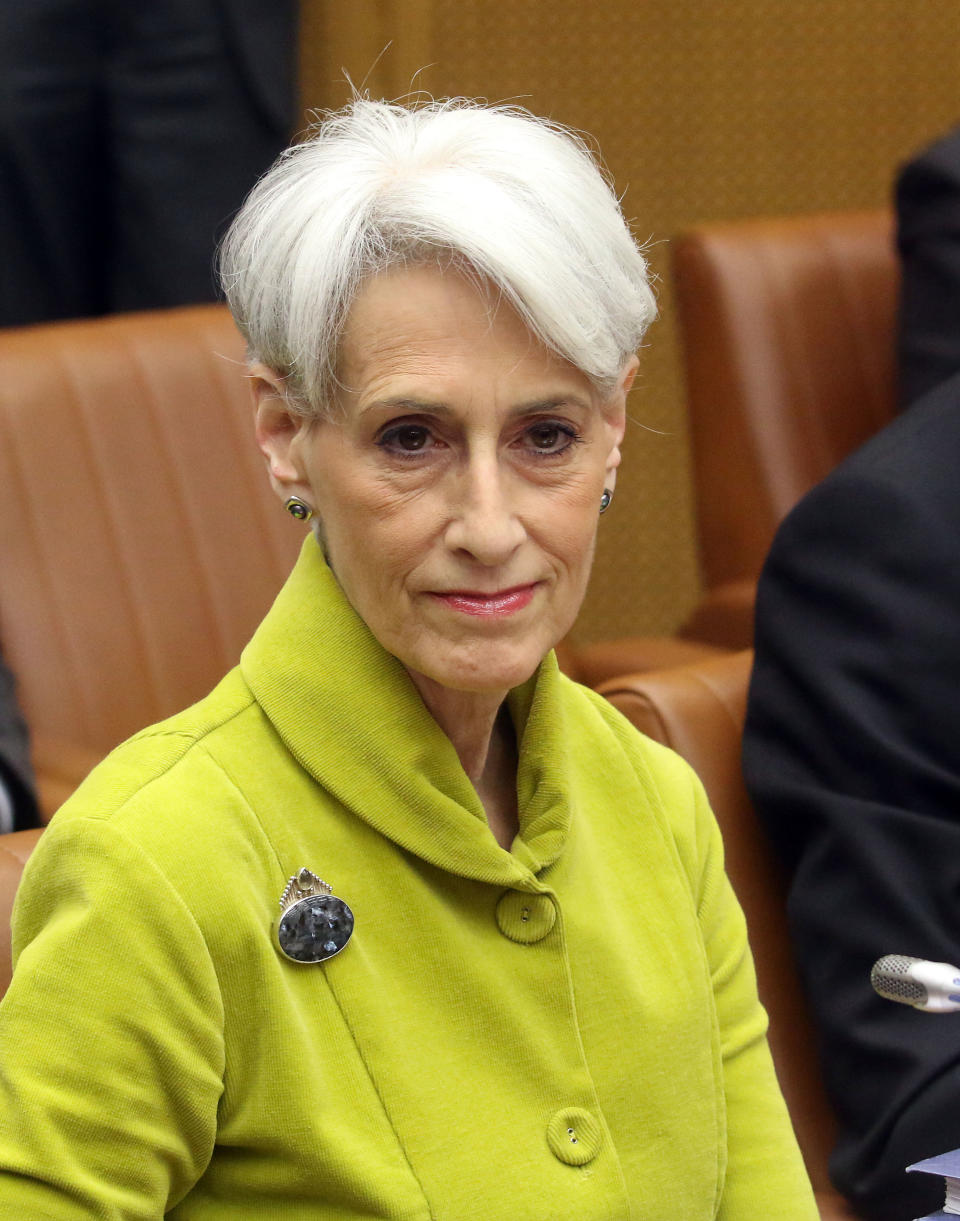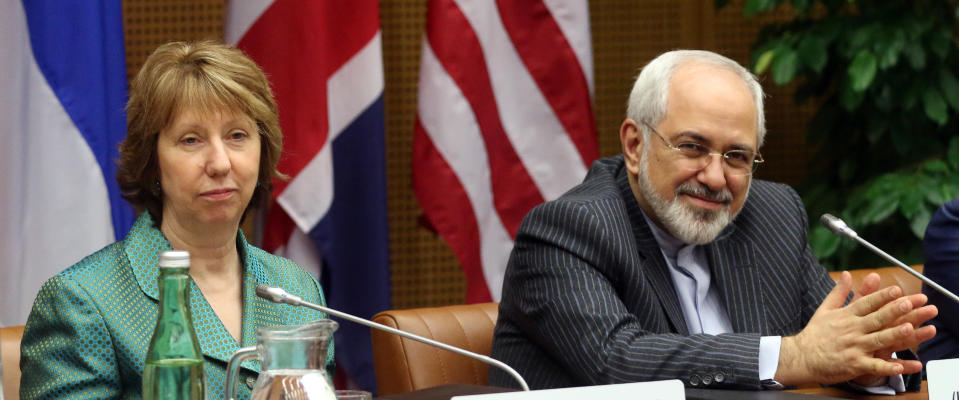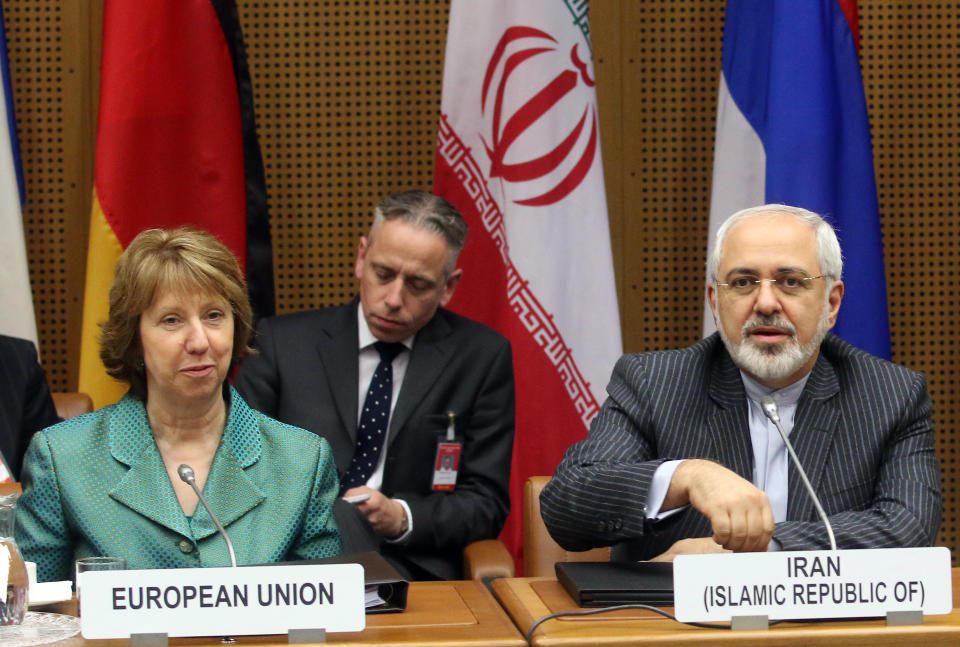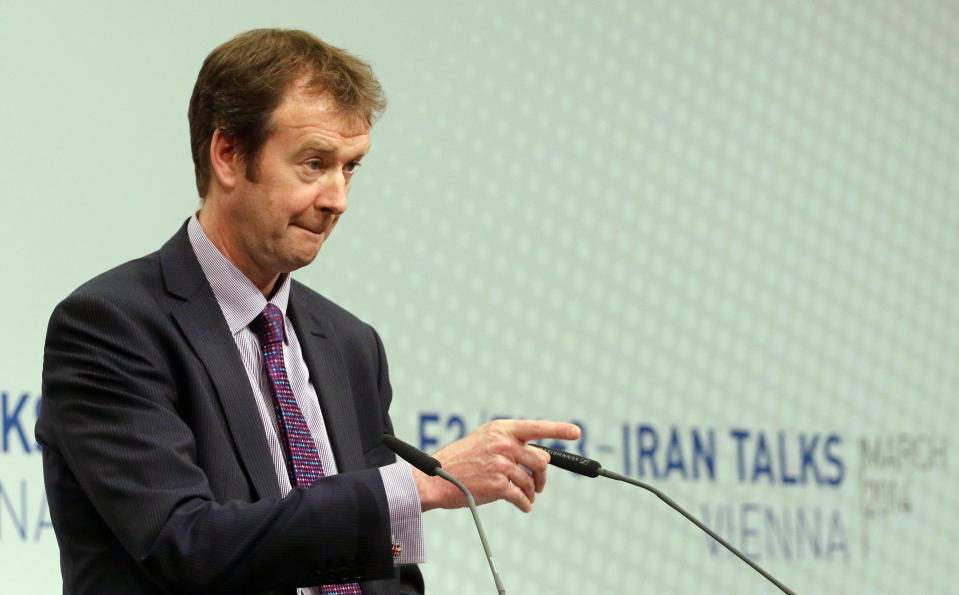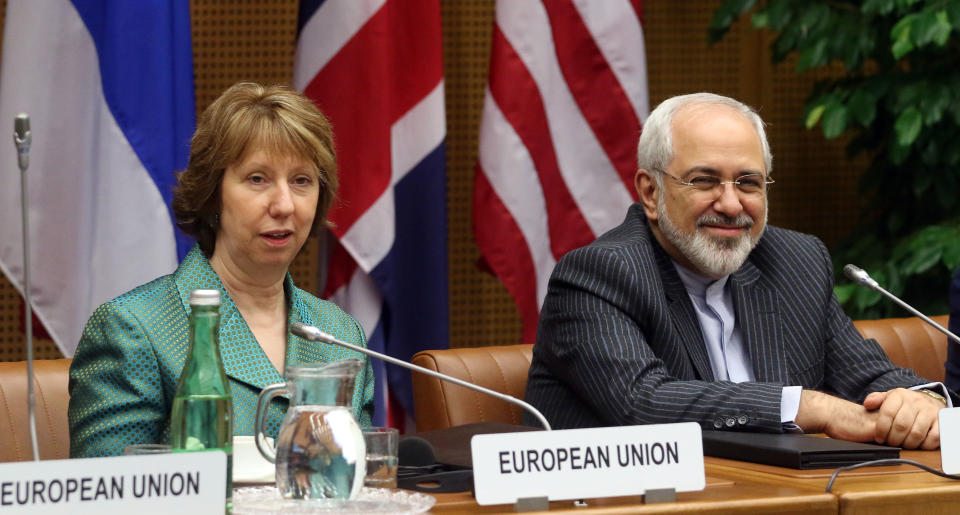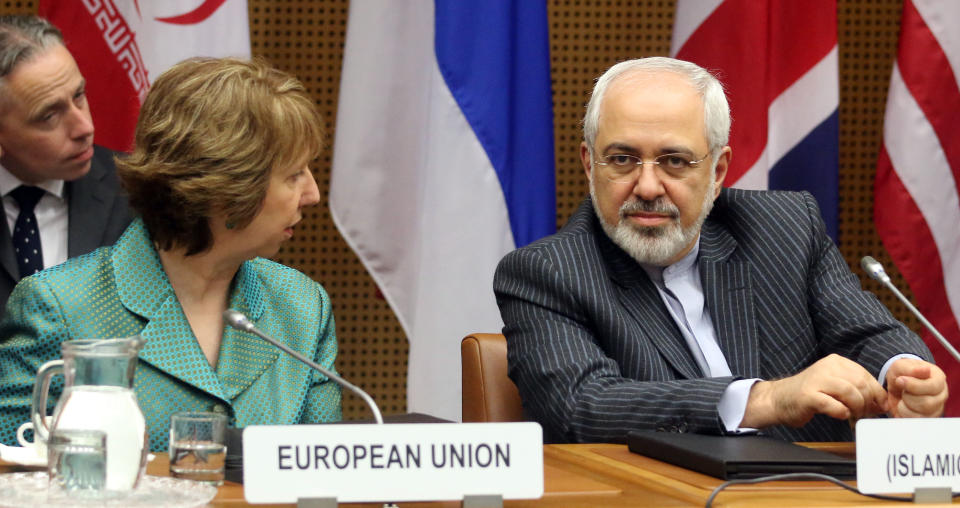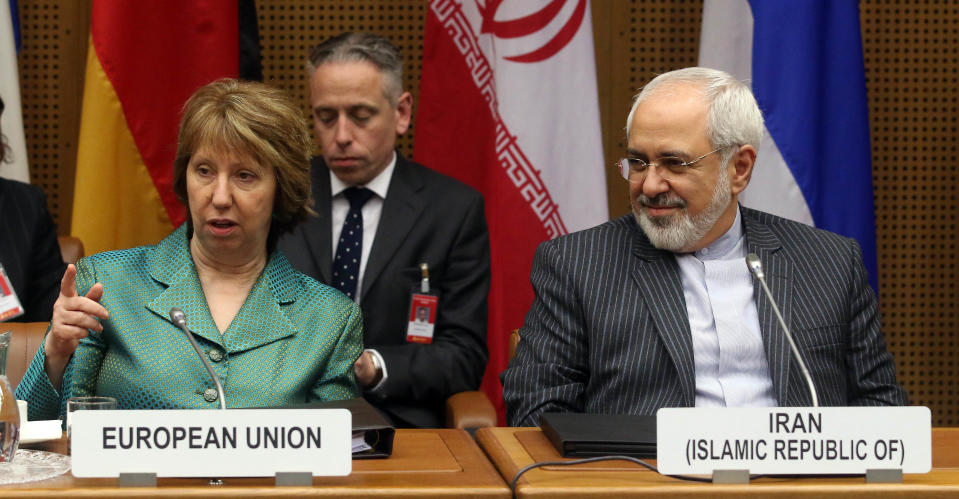Iran, 6 powers discuss sanctions, nuclear cuts
VIENNA (AP) — Iran and six world powers focused Tuesday on what an EU official called the "nitty-gritty" of a deal meant to curb Tehran's nuclear program and end sanctions on the Islamic Republic. Iran's foreign minister was more cautious as the talks opened, saying they were meant merely to exchange ideas.
The two sides hope to reach an agreement by July that eases international concerns about Iran's nuclear-weapons making capacity by trimming and strictly monitoring its atomic programs. Tehran denies any interest in nuclear weapons but is looking for a deal that will give it full relief from sanctions imposed progressively as it expanded its nuclear activities over the past decade.
A tiff between Iranian Foreign Minister Mohammad Javad Zarif and EU foreign policy chief Catherine Ashton over Ashton's recent meeting with Iranian opposition women activists had overshadowed Tuesday's resumption of the monthly talks. But Ashton's spokesman, Michael Mann, described the dispute as a possible "misunderstanding" that would not affect the meeting.
Zarif leads his country's delegation, while Ashton negotiates at least formally on behalf of the United States, Russia, China, Britain, France and Germany. Iranian media reported Monday that Zarif canceled his usual pre-talks dinner with Ashton to protest her meeting with opposition figures.
Going into the morning round of talks, Zarif was cited by Iran's official IRNA news agency as saying they "will be merely an exchange of ideas." But Mann said they focused on the "nitty-gritty" of preparatory work done by experts on both sides.
Russia and the United States differ on the specifics of what Iran needs in terms of curbing its nuclear program, and the Ukraine crisis has led to concerns that those differences could be exacerbated at the talks. Mann said, however, that "so far" the Ukraine tensions had no negative effect.
___
Margaret Childs contributed to this report from Vienna.

